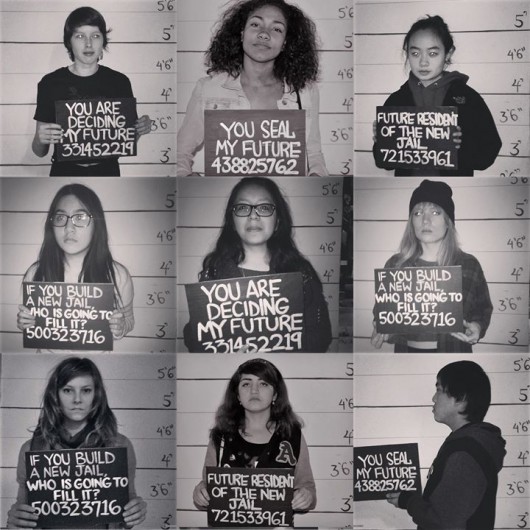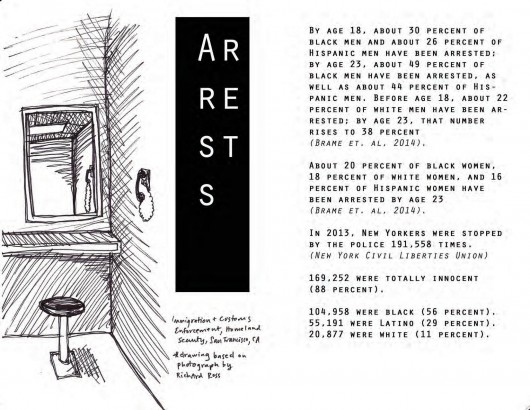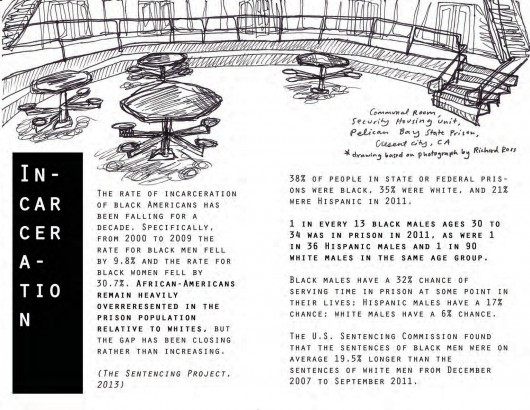What a strange moment we’re in… Prison ‘reform’ is in vogue.
 Last week, Buzzfeed published an article citing “bipartisan optimism” about prison reform. This weekend, the New York Times editorialized that out of this dysfunctional Congress “there may come one promising and unexpected achievement: the first major reforms to America’s broken criminal justice system in a generation.” On Monday, it was USA Today’s turn to deliver the ‘good news’ of reform. It appears then that folks in the Beltway and in the media are currently optimistic about criminal legal reform. The optimism has also spread to states like Louisiana, New York and Texas.
Last week, Buzzfeed published an article citing “bipartisan optimism” about prison reform. This weekend, the New York Times editorialized that out of this dysfunctional Congress “there may come one promising and unexpected achievement: the first major reforms to America’s broken criminal justice system in a generation.” On Monday, it was USA Today’s turn to deliver the ‘good news’ of reform. It appears then that folks in the Beltway and in the media are currently optimistic about criminal legal reform. The optimism has also spread to states like Louisiana, New York and Texas.
Last fall, a lot was made of Attorney General Eric Holder’s announced guidelines to reform federal drug sentencing. But as was pointed out by several commentators including the ACLU:
“…federal prosecutors already have the discretion to do what Mr. Holder is directing them to do. The trick will be getting them to do it. In other words, actually reducing the number of people subject to outdated and overly harsh mandatory minimums is totally dependent on prosecutors following Mr. Holder’s lead.”
Marijuana legalization for adults is proceeding in Colorado and Washington, with more states considering doing the same. Yet with every action, there is a reaction and last week the House of Representatives passed a bill “to force President Barack Obama to crack down on states that have legalized marijuana in any form.”
Nevertheless, the excitement is palpable about conservative organizations like “Right on Crime.” Since such groups are now willing to publicly criticize the criminal legal system as fiscally unsustainable, some hope that a window for decarceration is open. Books have been published this year suggesting that the era of the “punishment imperative” has ended (in fact that it actually ended in the early 2000s). Several words have been repeated in articles, conferences, media and legislatures across the country: fiscal responsibility, discretion, disproportionate minority contact, mass incarceration and reform.
As someone who has devoted years of her life to the work of first reforming and then later abolishing prisons, one might think that I would be excited about recent developments. In fact, my natural skepticism is now at its peak mainly because I am a student of history. The prison itself was born out of a reform movement and since its inception in the U.S. in the late 18th century, we have been tinkering towards imperfection. With every successive call for ‘reform,’ the prison has remained stubbornly brutal, violent and inhumane. A report titled “Struggle for Justice” published in 1971 put it this way:
“More judges and more ‘experts’ for the courts, improved educational and therapeutic programs in penal institutions, more and better trained personnel at higher salaries, preventive surveillance of predelinquent children, greater use of probation, careful classification of inmates, preventive detention through indeterminate sentences, small ‘cottage’ institutions, halfway houses, removal of broad classes of criminals (such as juveniles) from criminal and ‘nonpunitive’ processes, the use of lay personnel in treatment – all this paraphernalia of the ‘new’ criminology appears over and over in nineteenth-century reformist literature.”
Read more »









